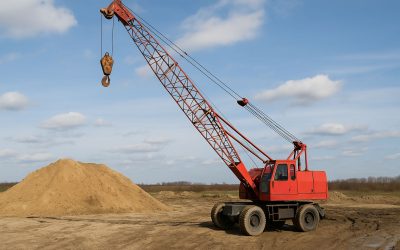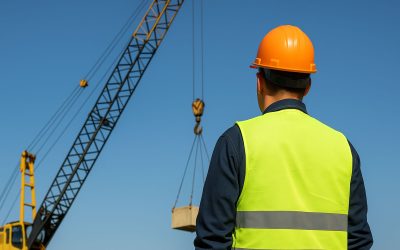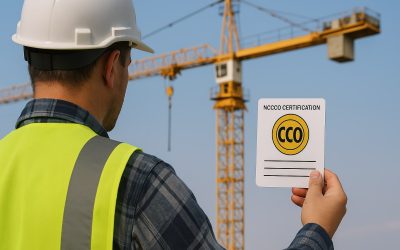If you’re pursuing a career as a crane operator or managing a team of operators, it’s critical to understand that crane certification requirements vary by state. While the National Commission for the Certification of Crane Operators (NCCCO) provides a nationally recognized certification, many states add their own rules and licensing standards.
In this guide, we break down state-specific crane operator certification requirements for jurisdictions that go beyond federal OSHA 29 CFR 1926.1427 guidelines. Whether you’re operating mobile cranes, tower cranes, or hoisting machinery, these requirements can affect your ability to work legally and safely in your area.
Why State Requirements Matter
All crane operators must meet OSHA’s requirement to be certified by an accredited organization such as NCCCO. However, states have the authority to enforce stricter safety laws, and many require additional exams, documentation, or state-issued licenses beyond the national certification.
This guide covers 18 states and jurisdictions with separate or additional crane operator licensing rules. If you’re moving between states or working across multiple regions, be sure to verify local regulations.
States with Additional Crane Operator Certification Rules
Each state below requires a license, certification, or process separate from (or in addition to) NCCCO:
California
- Authority: Cal/OSHA
- Cal/OSHA Crane Operator Requirements
Connecticut
- Authority: Dept. of Administrative Services
- CT Crane Operator Licensing Program
Hawaii
- Authority: Hawaii Occupational Safety and Health (HIOSH)
- Hawaii Crane Operator Certification Info
Maryland
- Authority: Maryland MOSH
- Maryland Crane Safety Info – DLLR
Massachusetts
- Authority: Dept. of Public Safety (now under Office of Public Safety and Inspections)
- Massachusetts Hoisting License Requirements
Minnesota
- Authority: Dept. of Labor & Industry
- Minnesota Crane Safety Overview
Nevada
- Authority: Nevada OSHA
- Nevada Crane Safety Regulations
New Jersey
- Authority: NJ Dept. of Labor
- NJ Crane Operator Licensing Information
New Mexico
- Authority: NM Construction Industries Division
- New Mexico Crane Licensing Information
New York (Statewide)
- Authority: NY Dept. of Labor
- NY State Crane License Info
New York City
- Authority: NYC Dept. of Buildings
- NYC Hoist Machine Operator License Info
Oregon
- Authority: Oregon OSHA
- Oregon Crane Safety and Licensing
Pennsylvania
- Authority: PA State Board of Crane Operators
- PA Crane Operator Licensure Snapshot
Rhode Island
- Authority: Dept. of Labor & Training
- RI Hoisting License Information
Utah
- Authority: Utah Labor Commission
- Utah Crane Operator Licensing Requirements
Virginia
- Authority: Dept. of Professional and Occupational Regulation (DPOR)
- Virginia Crane Operator Licensing
Washington
- Authority: Dept. of Labor & Industries (L&I)
- Washington Crane Safety & Certification
West Virginia
- Authority: WV Division of Labor
- West Virginia Crane Operator Licensing
Key Takeaways for Crane Operators
- Always check your state’s licensing board for the most up-to-date rules.
- Even if you’re NCCCO certified, you may need a separate state license.
- Medical evaluations, hands-on training, and continuing education are commonly required across states.
- Licensing periods range from 2–5 years, with most states requiring continuing education or reexamination.
Looking for Crane Operator Certification or State-Specific Guidance?
At Crane Safe LLC, we offer NCCCO certification programs and can help you navigate state-specific crane operator requirements. Whether you’re in Washington, California, or anywhere across the Pacific Northwest, our team is here to ensure you’re compliant, confident, and ready for the job.



